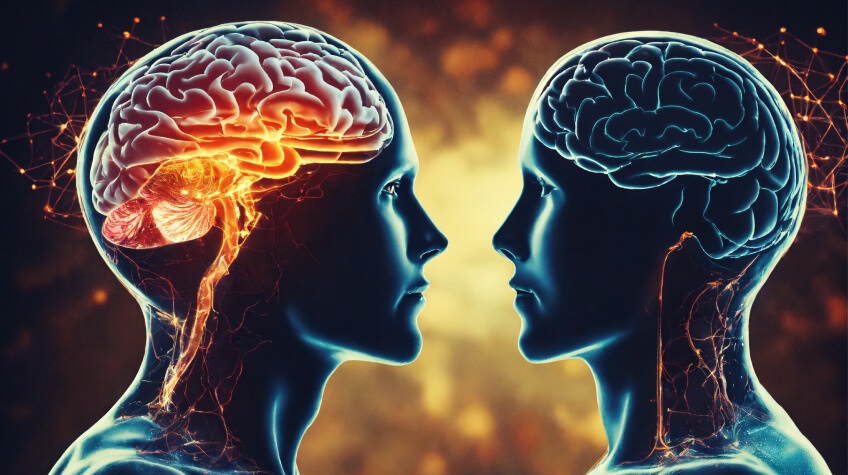
Personal and professional development depends on understanding the distinctions between hard and soft skills. Hard skills are particularly teachable knowledge sets or capabilities, like coding, operating equipment, or speaking a foreign language. These clearly measurable talents are often obtained via official education and training programs.
Conversely, soft skills are character and interpersonal qualities that determine how people deal with different circumstances and others. Examples include talents in problem-solving, collaboration, and communication. While technical expertise is shown by hard skills, collaboration, and environment adaptation are highlighted by soft skills.
What are Hard Skills and Soft Skills?
Hard skills, including programming, data analysis, or foreign language competence, are particularly teachable capabilities that can be quantified and described. Usually, school, training courses, or practical experience provide these abilities.
In contrast, soft skills are behavioral and interpersonal characteristics that affect how people communicate and collaborate with others. Among them are flexibility, collaboration, problem-solving, and communication. Technical jobs need hard skills, while leadership and good teamwork need soft skills. Both kinds of abilities are essential for professional success and work well together in different professional contexts.
Examples of Hard Skills and Soft Skills
❖ Hard Skills Examples
1. Programming
Learning Python or Java allows developers to build strong software programs, from online platforms to intricate algorithms used in data analytics and artificial intelligence. These abilities are essential in today’s technologically advanced sectors, where efficiency and creativity are critical.
2. Data Analysis

Analysts who are proficient with programs like R or SQL are better able to draw significant conclusions from huge datasets. This skill set is crucial for forecasting future results, spotting patterns, and making well-informed business choices in the financial, healthcare, and marketing industries, among others.
3. Language Proficiency
Speaking French, Mandarin, or Spanish well improves communication worldwide and provides access to foreign markets and partnerships. Beyond language fluency, empathy and successful cross-cultural contacts in business and diplomacy are promoted by cultural awareness acquired via language competency.
4. Project Management
Proficiency with project management software like Trello or Asana ensures efficiency in planning, executing, and monitoring activities and deadlines. Effective resource allocation, team coordination, and on-time and within-budget project delivery depend on strong project management abilities.
5. Graphic Design
Using design programs like Adobe Photoshop or Illustrator enables artists to create visually striking work. Graphic design abilities are essential for creating user interfaces, digital artwork, and marketing materials, defining brand identity, and improving user experience across a range of media.
❖ Soft Skills Examples
1. Communication
Verbal and written communication are equally important for professionals to be able to express ideas effectively, listen intently, and establish relationships with customers, coworkers, and stakeholders. Good communicators encourage cooperation, openness, and trust among teams, which raises output and accomplishes organizational objectives.
2. Teamwork

To work together, one must actively promote group goals, value other viewpoints, and create a supportive atmosphere where group accomplishments are valued more than individual ones. Working together promotes creativity, problem-solving, and shared accountability, optimizing team performance and producing better results.
3. Problem-Solving
Sharp problem-solving skills include the ability to examine intricate problems, pinpoint their underlying causes, and create tactical solutions that successfully handle obstacles. This skill set is necessary to go above roadblocks, streamline procedures, and adjust to new situations in order to guarantee operational effectiveness and ongoing development within businesses.
4. Adaptability
Flexibility and adaptability help employees welcome change, deal with uncertainty, and succeed in fast-paced work settings. By rapidly picking up new abilities, adjusting to changing priorities, and seizing chances, adaptable people show resiliency and support organizational agility and expansion in the face of changing market circumstances.
5. Leadership
Strong leadership qualities enable one to create specific objectives, inspire and motivate teams, and steer people toward group achievement. Because they are honest, compassionate, and skilled decision-makers, effective leaders create a productive environment where creativity thrives, morale is strong, and organizational goals are regularly met.
Difference Between Hard Skills and Soft Skills
Understanding the difference between hard skills and soft skills is essential for career development and workplace success. Both sets of skills play a crucial role in creating a balanced and effective professional profile.
Here’s an in-depth look at their differences:
❖ Measurement
➯ Hard Skills
One may measure and quantify hard skills. Exams, certificates, or real-world demonstrations are often used to evaluate them. Technical interviews or coding exams, for example, may confirm programming language competency. Similarly, tests or project reviews may assess data analysis proficiency. Measurement of these talents is simple since they have well-defined standards and criteria.
➯ Soft Skills
Subjective in nature, soft skills are usually assessed over time by watching interactions and conduct. Qualitatively speaking, these abilities are more difficult to measure. Performance evaluations, peer comments, and behavioral interviews are popular techniques for evaluating soft skills. They are assessed by how effectively people interact and perform in various circumstances rather than by standardized examinations, as are hard skills.
❖ Acquisition

➯ Hard Skills
Hard skills are acquired via formal education, training courses, and practical experience. To develop project management abilities, one may take specialist courses, get certifications such as PMP (Project Management Professional), and get real-world project management experience. Many times, these abilities are honed in controlled learning settings where certain information and skills are imparted.
➯ Soft Skills
Life events, self-awareness, and outside criticism often hone Soft Skills. Soft skills are not taught in official settings and are usually learned from life events and relationships. Leading a team in a volunteer group may help one develop one’s leadership abilities, as can helpful criticism and mentoring. Soft skills call for constant personal growth and reflection.
❖ Applications
➯ Hard Skills
Hard skills are task-specific and closely linked to work duties. A software developer, for instance, writes software using coding abilities, a data analyst interprets data using statistical tools, and a graphic designer utilizes design applications to produce visual material. These abilities are essential for the technological parts of a work and are used to carry out specific duties.
➯ Soft Skills
These are skills that work in all jobs and sectors. They improve the general dynamics and efficacy of the job. For example, in whichever line of work or sector, good communication is necessary to communicate ideas and establish connections successfully. Similarly, problem-solving abilities support tackling problems and coming up with answers in any kind of professional setting. Excellent and productive work environments are primarily dependent on soft skills.
❖ Nature
➯ Hard Skills
Hard skills are technical skills or knowledge bases relevant to a field or profession. These abilities include the unique knowledge and technical expertise needed for certain jobs. Examples include project management, data analysis, and programming languages. The technical execution of work duties requires hard skills.
➯ Soft Skills
Personality and interpersonal qualities, known as soft skills, affect communication and collaboration. These abilities include leadership, flexibility, collaboration, and communication. Leading teams, establishing connections, and collaborating well all require soft talents. They are necessary to control people dynamics and provide a good work environment.
Conclusion
Career success requires an understanding of the distinctions between hard and soft skills. Hard skills are technical, quantifiable talents obtained by formal education or training, such as coding and data analysis skills. Teamwork and communication are examples of soft skills and interpersonal abilities that come from experience and self-awareness.
Both are necessary; while soft skills allow for flexibility and efficient teamwork at work, hard skills guarantee your capacity to do certain duties. A well-rounded applicant who can succeed in a variety of job settings and reach long-term career objectives has a balanced blend of both skill sets.




![How to Find and Hire Professional Developer for Your Startup [2024] How to Find and Hire Professional Developer for Your Startup [2024]](https://www.weetechsolution.com/wp-content/uploads/2023/04/Finding-and-Hiring-Professional-Developers-for-Your-Startup-1-300x150.jpg)

